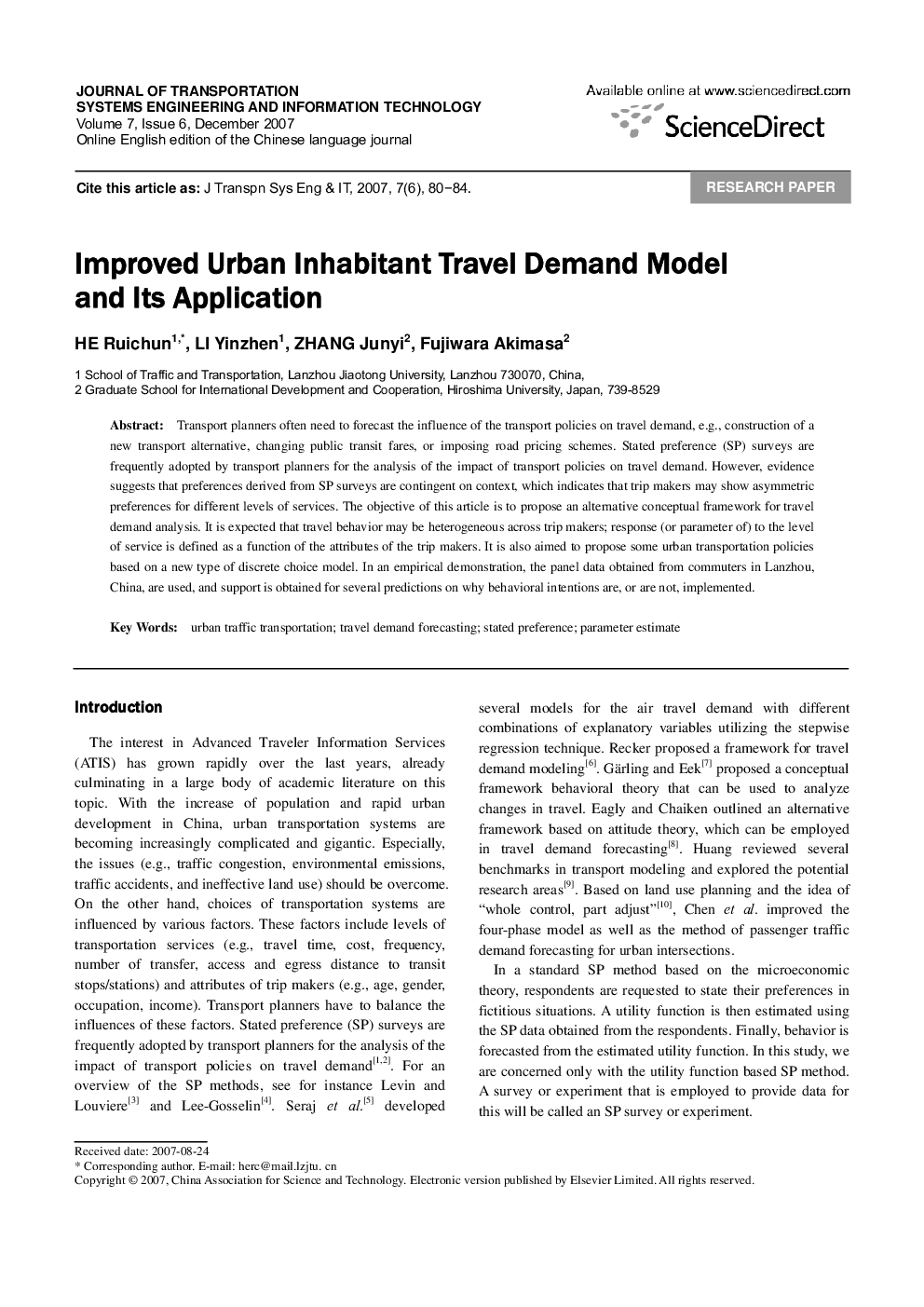| Article ID | Journal | Published Year | Pages | File Type |
|---|---|---|---|---|
| 108761 | Journal of Transportation Systems Engineering and Information Technology | 2007 | 5 Pages |
Transport planners often need to forecast the influence of the transport policies on travel demand, e.g., construction of a new transport alternative, changing public transit fares, or imposing road pricing schemes. Stated preference (SP) surveys are frequently adopted by transport planners for the analysis of the impact of transport policies on travel demand. However, evidence suggests that preferences derived from SP surveys are contingent on context, which indicates that trip makers may show asymmetric preferences for different levels of services. The objective of this article is to propose an alternative conceptual framework for travel demand analysis. It is expected that travel behavior may be heterogeneous across trip makers; response (or parameter of) to the level of service is defined as a function of the attributes of the trip makers. It is also aimed to propose some urban transportation policies based on a new type of discrete choice model. In an empirical demonstration, the panel data obtained from commuters in Lanzhou, China, are used, and support is obtained for several predictions on why behavioral intentions are, or are not, implemented.
